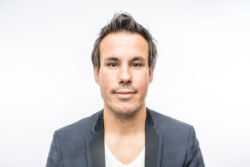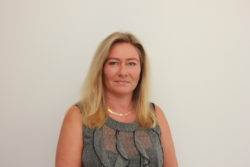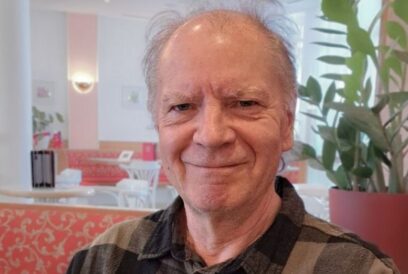

It is easy to argue that adult education practice would benefit from utilising more research. But the field of practice could also be more proactive in bringing themes and issues into the attention of researchers, Antra Carlsen says. Photo: Shutterstock
Putting research into practice: challenges and opportunities in adult education
Published:It is easy to argue that adult education practice would benefit from utilising more research. But the field of practice could also be more proactive in bringing themes and issues into the attention of researchers, Antra Carlsen says. Photo: Shutterstock
New initiatives in Sweden are bringing practice-oriented research into adult education. Two Nordic experts share their insights about how adult education research and the use of it could be further improved.
Research is crucial for development. It allows us to keep up with the changing world, introduces us to new ideas and provides the knowledge and means to readjust the ways we think and act. To put it simply: without research, there is no progress.
While it is easy to understand the importance of scientific research to the modern world, there are several obstacles to overcome before it can influence the reality we live in. Researchers need to find funding, present their results in an understandable way and get the attention of the right audience.
This is as true for adult education as for all other fields where science meets practice and politics. Research has value in itself, but in order to make a difference beyond the realm of science, it also has to result in action.
Political recognition and influence are hard to achieve
One of the key issues for adult education and the research related to it is well known.
“Education of adults comes in second, third or fourth place on the political agenda. Politicians rather speak of compulsory school and other types of formal education”, says Andreas Fejes, professor and chair of adult education research at Linköping University, Sweden.
Politicians should listen and take into account what researchers say, but we too have an obligation to communicate our research in an understandable way.
Without support from policy makers, both funding for research and making an impact on educational policies are difficult to achieve.
Andres Fejes used to be a part-time politician himself, and knows the logic of politics well.
“As a politician, you have your idea of what you want to do, and then you cherry-pick the research that fits your agenda. The nature of politics is ideological rather than intellectual. So as a researcher, it’s hard to get a good conversation going on which has a real impact”.
On the other hand, he says, you can also criticise researchers.

Andreas Fejes is the professor and chair of adult education research at Linköping University, Sweden.
“Politicians should listen and take into account what researchers say, but we too have an obligation to communicate our research in an understandable way”.
While there still is much work to be done to increase the political focus on adult education, prof. Fejes sees progress in his home country.
“The current minister of education is quite verbal about adult education in a positive way. There is also an increasing amount of adult education related tasks to Skolverket, the national agency for education. And after years of lobbying, we managed to get funding for a graduate school for teachers working in folk high schools”.
The graduate school is an interesting initiative, and we will have a closer look at it in a minute. Before that, let’s find out how adult education research works in general.
What is happening in the classroom?
In addition to his role at Linköping University, Andreas Fejes is also the chair and board member of ESREA (European Society for Research on the Education of Adults). One of ESREA’s key roles is to disseminate the research results to adult learning organisations.
Within ESREA, there are twelve international networks focused on different research topics. Each network hosts annual or biannual conferences for the researchers to share their findings in. ESREA also has a dedicated journal and book series, where research results are published and available for a wider audience.
The central way to disseminate research results, prof. Fejes says, is by open access publications.
An area that is almost completely missing is what’s actually happening in the classroom.
“We have had our own journal, RELA, for twelve years. We try to engage researchers from all across Europe and encourage them to contribute in English in order to make the publications more available. There are no fees for the writers or readers, which is key to accessibility”.
The amount of research and the variety of topics is staggering, but Andreas Fejes sees room for improvement in one specific area.
“Most of the adult education research concentrates on things like sociological studies, the history of adult education or on how teachers experience things. An area that is almost completely missing is what’s actually happening in the classroom. I would say that it is a black box”.
Cooperation across borders in the Nordics
The Nordic Network for Adult Learning (NVL) is one of the organisations that supports the development of policy and practice of adult education in the Nordic countries. Antra Carlsen, the head coordinator for NVL, says that there is always a call for more high-quality research.
“I would say that all fields need more research, which is of course easier said than done. However, the field of practice could also be more proactive in bringing themes and issues into the attention of researchers”, she says.
NVL is funded by the Nordic Council of Ministers, and the organisation’s main task is to promote Nordic cooperation in lifelong learning and the education of adults. According to Antra Carlsen, central to this is to get different parties to work together.
If we agree on common goals, the results are very good and innovative.
“One topic which is high on our agenda is to build bridges across the different sectors of education: formal, non-formal and academia – and also working life. All of these have their own strong structures and interests. But if we agree on common goals, the results are very good and innovative”.
A recent example of communicating and disseminating research results is the Nordic-Baltic PIAAC Network, which follows the PIAAC (Programme for the International Assessment of Adult Competencies) survey conducted in 40 different countries.

Antra Carlsen is the head-coordinator of the Nordic Network for Adult Learning (NVL), established by the Nordic Council of Ministers and based in Denmark.
The aim of the network is to support spreading the results to a broad range of stakeholders in five countries, publish further in-depth reports and hold a Nordic-Baltic PIAAC conference.
NVL is also going to host a website, which should be online later this year and become a meeting place and a center of information from a Nordic-Baltic PIAAC network.
“The website intends to increase awareness and use of PIAAC data for researchers, adult education providers and governmental and municipal organisations, Antra Carlsen says.
A new focus point for adult education research in Sweden
Linköping University is also building bridges between research and practice in adult education.
Central to this is the earlier mentioned graduate school for doctoral students. Twelve doctoral students will be employed by folk high schools in Linköping, Göteborg and Jönköping, the schools allowing them to dedicate half of their working time to doctoral studies.
“The research they will conduct should be practice-oriented, about what is happening in the teachers’ world and classrooms in folk high schools”, Andreas Fejes explains.
In addition to big conferences, lighter forms like webinars and podcasts could be used to share new findings in a more ongoing manner.
Another graduate school involves nine doctoral students employed by universities and focusing their research on kommunal vuxenutbildning, municipal adult education intended for adults who have not finished primary or secondary education. Again, the approach is practice-oriented.
Andreas Fejes says that the two projects are a result of years of lobbying, following a growing focus on practice-oriented research in general. The work that is about to begin should benefit the schools involved, as well as academic research and the adult education field as a whole.
“In total we will have 21 doctoral students in Sweden who are focusing on adult education and building relationships between academia and folk high schools. This is a huge, gigantic thing that has never happened before”, he says.
Antra Carlsen embraces the idea.
“These are highly interesting initiatives, as the students can bring new knowledge and innovation back into their organisations. At NVL, we also strive to have researchers represented and participating in our networks”.
A strong call for information and confirmation
Antra Carlsen has an idea on how to further improve the awareness and dissemination of adult education research.
As both ESREA and NVL are organized around networks, conferences play an important part in getting experts together to share research results and communicate with each other.
However, she says, there could also be new and easier ways to share information.
“In addition to big conferences, lighter forms like webinars and podcasts could be used to share new findings in a more ongoing manner”, she says.
Andreas Fejes does a lot of lectures and seminars with teachers working in both formal education and adult education across Sweden. For the latter group, he has noticed a visible call for research which recognises their work.
“This is a generalisation, but if you go and do a lecture for a big group of teachers, many of them might not be all that interested in what you have to say. They are there because the principal has told them to attend this lecture”, he says and continues:
“But whenever I do a lecture for adult education teachers, the feeling is opposite. The teachers are hungry for confirmation, they are eager to know that someone is doing research and understands their situation”.
Antra Carlsen is a member of Elm Editorial Board






